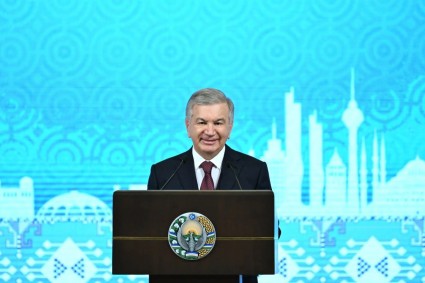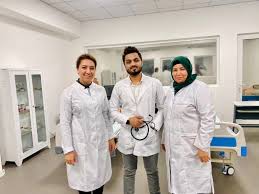The International Water Management Institute (IWMI, Central Asia Representative Office) jointly with University of Manchester, UK organized a workshop under the FutureDams project for government organisations and interested stakeholders working on the interaction of water-energy- food and the environment.
The world and the region needs to develop plans and implement them to mitigate the impact of climate change - using less fossil fuel to drive energy supplies; adapt to changing water needs as well as cope with increasing water shortages; as well as develop a sustainability agenda to meet the UN-Sustainable development Goals. Against this background, the University of Manchester and IWMI have developed a series of modeling tools and frameworks to support planning and implementation around the so called water-energy food nexus under a project called Future Dams supported and funded by FCDO and UK Government.
Today, 28th March a workshop in Tashkent took place to present the overall framework and progress with assembling data for the Amu Darya River basin and possible future scenarios presented to participants. Following the presentation attendees were invited to share their specific needs around planning and implementation around water energy and food and how the tools and data presented might be further developed to address these.
FutureDAMS aims to develop and enable new forms of analysis for the assessment of interventions, such as new infrastructure or management policies, in water-energy-food-environment (WEFE) systems and demonstrate their value by applying them with interdisciplinary teams and stakeholders. The model, developed within the FutureDAMs project, simulates customizable water allocation and operation rules throughout complex multi-purpose managed water systems at each user-defined time-step. The model can be hosted and run online using new technologies, with the aims of reducing barriers to advanced and collaborative WEFE systems analysis.
During the workshop, high-level participants shared their thoughts on opportunities to further promote and institutionalize the Pywr’ model application in Amu Darya River basin and identified potential activities to further enhance the model and replicate it to cover for the whole Aral Sea Basin. In general, Stakeholders stressed importance of facilitation the adoption of model to Aral Sea basin to inform decisions aimed at adapting and mitigating the impacts of climate change on WEFE systems, and the development of a decision support system, as well as strengthening the capacity of stakeholders (by creating a knowledge base, improving relationships in various sectors of the economy).
IWMI has invited several high-level representatives from Central Asian countries, and they represent ministries, State Committees, Universities, research organizations, and NGOs. Three-panel discussions are organized to understand stakeholders' priority issues facing planning infrastructure against topics such as development, climate change, food, and energy security.
This seminar has become a platform for interaction between national partners, development partners and international organizations to discuss the specifics of implementing the WEFE NEXUS approach for the Aral Sea basin.















